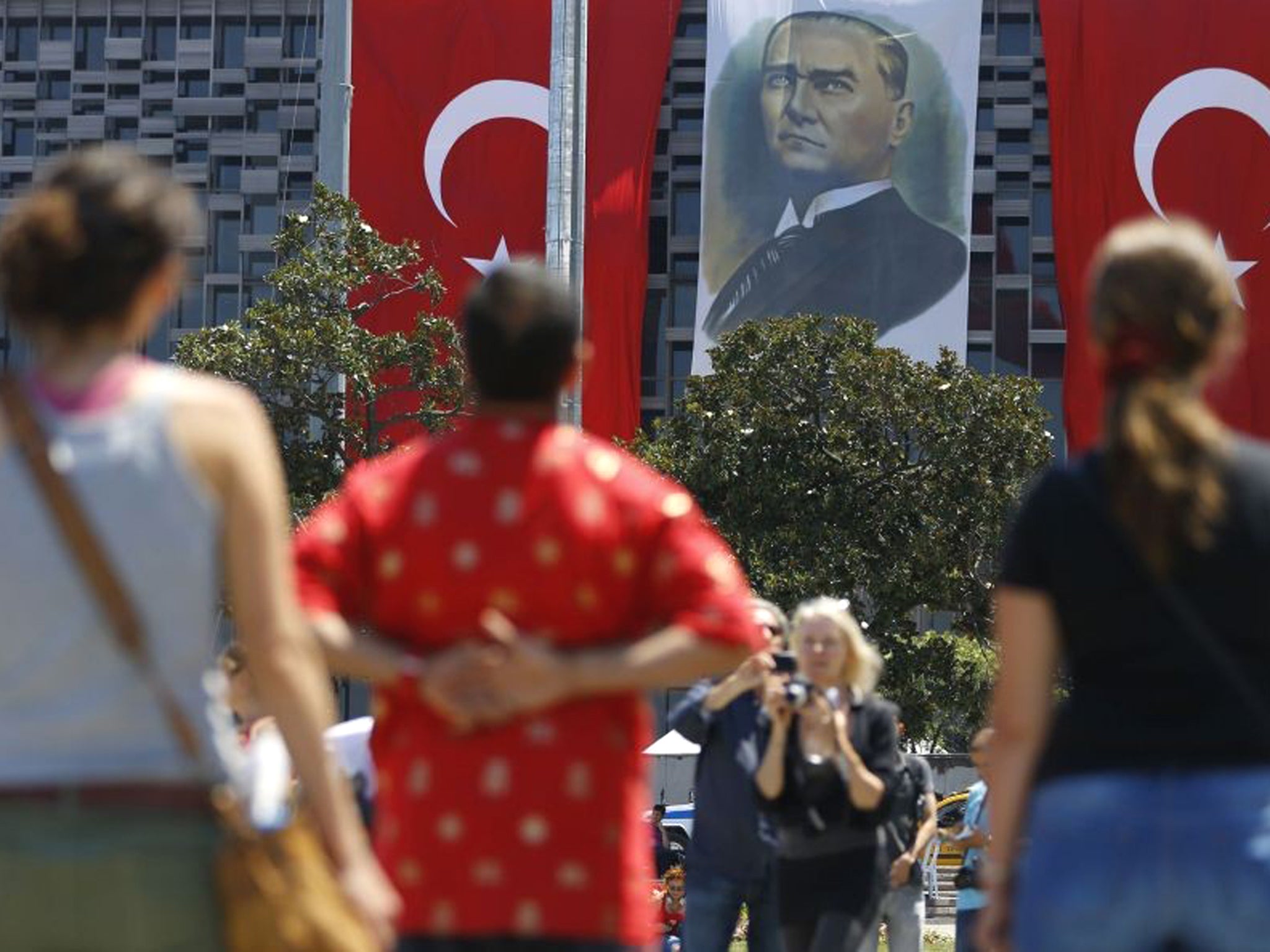Turkey unrest: 'Standing Man' inspires hundreds with silent vigil in Taksim Square
Government denies that it would restrict the use of Twitter or other social media

Deputy Prime Minister Bulent Arinc has approved a new form of peaceful resistance which has spread through Turkey after almost three weeks of protests.
Hundreds of protesters stood still for hours on squares on main streets in several cities, mimicking a lone protester who started the trend on Istanbul's Taksim Square on Monday and has been dubbed the "Standing Man."
In the first direct government comment on the new style of protest, the deputy prime Minister told reporters that the standing protests are peaceful and "pleasing to the eye." He urged protesters, however, not to obstruct traffic and not to endanger their health.
"This is not an act of violence," Arinc said. "We cannot condemn it."
The first such protest was carried out by performance artist Erdem Gunduz, who stood for eight hours at Taksim Square, in passive defiance of Mr Erdogan. Mr Gunduz stood silently facing a portrait of Kemal Ataturk, the founder of modern, secular Turkey.
Hundreds of others joined him in the square, which was reopened on Monday, before being dispersed by police. Others copied him in Istanbul and other cities, and the act provoked widespread comment on social media.
Mr Gunduz's vigil was broken up by police after others joined him.
Mr Gunduz told the BBC: "I'm nothing... The idea is important: why people resist the government. The government doesn't want to understand, didn't try to understand why people are on the streets. This is really silent resistance. I hope people stop and think 'what happened there?'"
The state-run Anadolu Agency said police used water cannons last night to scatter hundreds of protesters who set up barricades in the capital Ankara and in Eskisehir, some 140 miles (230 kilometers) further west.
More than 7,500 people have been injured and at least four people — three demonstrators and a police officer — have been killed as the authorities tried to quell the protests using tear gas and water cannons. Authorities are investigating whether a fifth person who died was exposed to tear gas.
Bulent Arinc denied that Turkey would restrict the use of Twitter or other social media but said the government could consider enacting legislation in a bid to deter users from "inciting crime, spreading lies and disinformation."
"Social media is a part of modern life and none of us can remain outside of it," Arinc said. "But there have to be some deterrents."
Turkish Prime Minister Recep Tayyip Erdoganhas branded Twitter the "worst menace" to society and criticized it for spreading "lies."
Mr Erdogan says he will increase police powers as dozens of demonstrators were questioned by police following a series of raids.
NTV television said the swoops in Ankara and Istanbul targeted left-wing groups. Turkey's state-run Anadolu Agency said at least 25 people were detained in Ankara and many others in Istanbul.
Mr Erdogan said riot police deployed to disperse protesters had acted with restraint and said their powers would be increased, allowing them more leeway in dealing with future protests.
"Our security forces put up a successful and extremely patient struggle against the acts of violence, by remaining within the limits set by democracy and the law," he said.
The government said on Monday that it may send the army on to the streets to end the unrest that has gripped the country for almost three weeks.
Bulent Arinc told Turkish state-run television that the government would use “all its powers” to end the unrest. “There is the police, If that’s not enough there’s the gendarmerie [a paramilitary force]. If that’s not enough there are the armed forces,” he added.
The deployment of the military would represent yet another escalation of a crisis that looked to be heading for a peaceful resolution as recently as Saturday, before Mr Erdogan ordered police in to clear protesters from Gezi Park with tear gas and rubber bullets.
The Prime Minister is still trying to reign in mass protests that have spread across the country over the past three weeks. The protests gained momentum after police used tear gas against a peaceful sit-in in Istanbul’s Gezi Park on 31 May, objecting to the demolition of the park for a commercial development.
The protests grew into wider demonstrations against Mr Erdogan's perceived attempts to impose a religious and conservative lifestyle in a country which has secular laws. But the prime minister, a devout Muslim, says he is committed to Turkey's secular laws and denies charges of autocracy.
Join our commenting forum
Join thought-provoking conversations, follow other Independent readers and see their replies
Comments
Bookmark popover
Removed from bookmarks